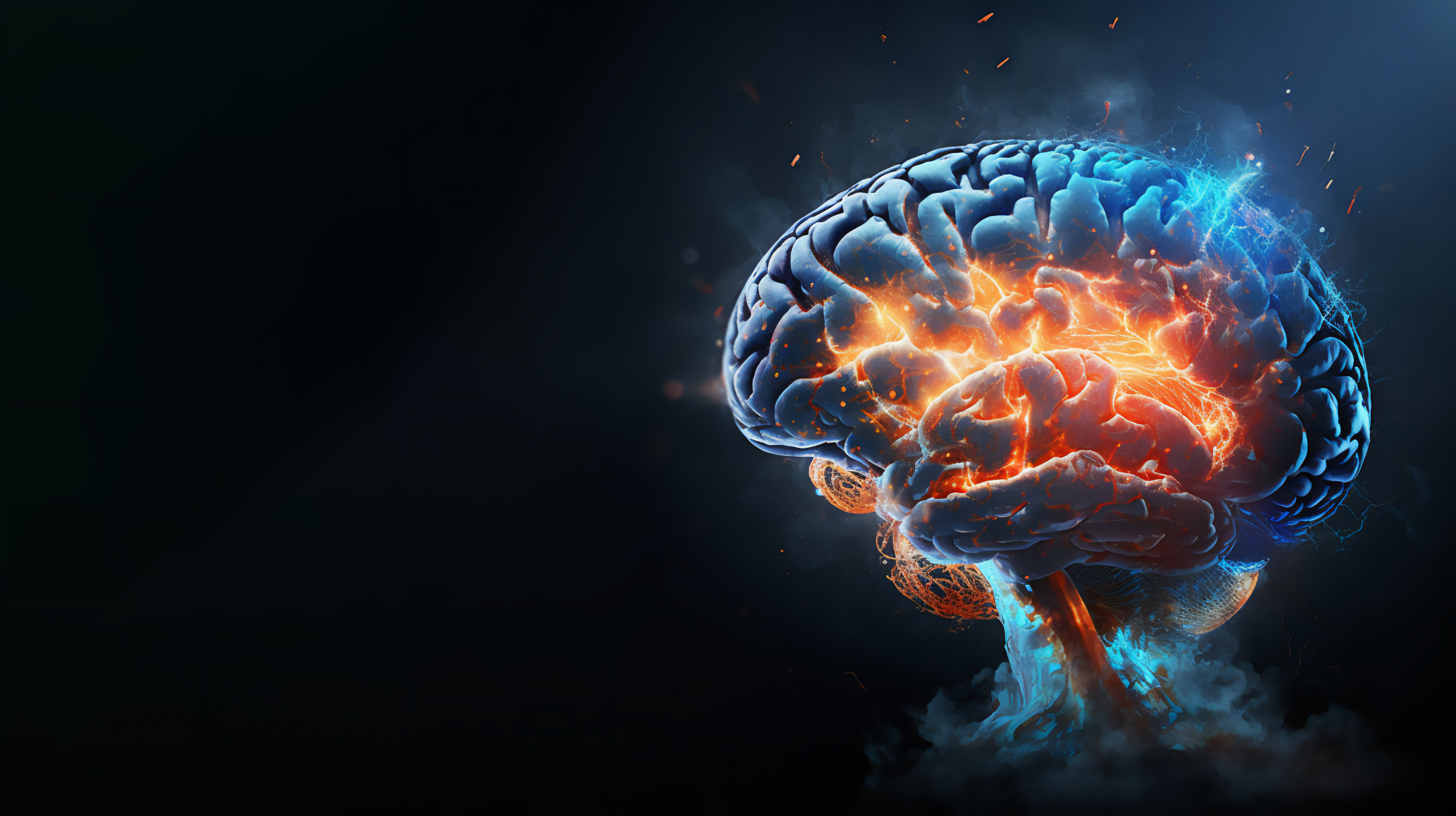Did your brain age with COVID-19? A new scientific study suggests this.

Can stress, isolation, and global disruption leave their mark on people's minds? This is according to a new study, led by experts at the University of Nottingham , which found that living through the COVID-19 pandemic may have accelerated people's brain health, even if they were never infected with the virus.
It's not just those who fell ill, but also those who lived through the stressful times when the entire world went into quarantine to prevent the spread of the virus. The results, published in the journal Nature Communications , showed that people who lived through the COVID-19 pandemic showed signs of brain aging more rapidly over time than those fully examined before it. The changes were more noticeable in older individuals, men, and people from more disadvantaged backgrounds.
Our results reveal that, even with initially matched brain age gaps (predicted brain age versus chronological age) and matched for a range of health markers, the pandemic significantly accelerated brain aging,” the researchers note in the study.
The scientists also indicated that accelerated brain aging is more pronounced in men and those from disadvantaged sociodemographic backgrounds. However, they clarify that accelerated brain aging is correlated with lower cognitive performance only in participants who were infected with COVID.
This means that only those infected with this virus showed a decline in certain cognitive abilities , such as mental flexibility and processing speed. According to experts, this may suggest that the brain-aging effect of the pandemic, on its own (without infection), may not cause symptoms.
"Our study highlights the significant impact of the pandemic on brain health, beyond the direct effects of infection, and underscores the need to consider broader social and health inequalities," the experts write in the study.

Even people who hadn't had Covid showed increases in aging rates. Photo: iStock
"What surprised me most was that even people who hadn't had COVID showed significant increases in brain aging indices. It really demonstrates how much the experience of the pandemic itself, from isolation to uncertainty, can have affected our brain health," said Dr. Ali-Reza Mohammadi-Nejad, who led the study.
The study was led by a team of experts from the University of Cambridge's School of Medicine and supported by the National Institute for Health and Care Research (NIHR) Nottingham Biomedical Research Centre and the Medical Research Council (MRC) Demistifi programme.
The research team analyzed longitudinal brain scans of nearly 1,000 healthy adults taken as part of the UK Biobank study . Some participants underwent scans before and after the pandemic; others, only before. Using advanced imaging and machine learning, the researchers calculated each person's "brain age"—how old their brain appeared to be compared to their actual age.
“Longitudinal MRI data acquired before and after the pandemic at the UK Biobank provided a rare window into how major life events can affect the brain,” explained Stamatios Sotiropoulos, Professor of Computational Neuroimaging and co-senior author of this research.
The brain age model was developed from brain scans of more than 15,000 healthy individuals with no comorbidities, allowing the researchers to build an accurate model for estimating brain age.
“This study reminds us that brain health depends not only on the disease itself, but also on our everyday environment ,” said Dorothee Auer, professor of neuroimaging and senior author of the study. “The pandemic placed a strain on people's lives, especially on those who were already disadvantaged. We can't yet prove whether the changes we saw will be reversed, but it's certainly possible, and it's an encouraging prospect.”
But to determine whether or not we can reverse the pandemic's effects on our brains, experts emphasize that longer follow-up is needed after the pandemic to investigate the lingering effects of brain aging and its long-term consequences beyond the acute cognitive impacts in the infected subgroup.
eltiempo

%3Aformat(jpg)%3Aquality(99)%3Awatermark(f.elconfidencial.com%2Ffile%2Fbae%2Feea%2Ffde%2Fbaeeeafde1b3229287b0c008f7602058.png%2C0%2C275%2C1)%2Ff.elconfidencial.com%2Foriginal%2F880%2Fda5%2F454%2F880da5454956c190b4fe6f7f283e282f.jpg&w=3840&q=100)
%3Aformat(jpg)%3Aquality(99)%3Awatermark(f.elconfidencial.com%2Ffile%2Fbae%2Feea%2Ffde%2Fbaeeeafde1b3229287b0c008f7602058.png%2C0%2C275%2C1)%2Ff.elconfidencial.com%2Foriginal%2F6ec%2Fd22%2F149%2F6ecd221497f9a8652ec074283d0e77c2.jpg&w=3840&q=100)
%3Aformat(jpg)%3Aquality(99)%3Awatermark(f.elconfidencial.com%2Ffile%2Fa73%2Ff85%2Fd17%2Fa73f85d17f0b2300eddff0d114d4ab10.png%2C0%2C275%2C1)%2Ff.elconfidencial.com%2Foriginal%2Fc11%2Fd8b%2F5a8%2Fc11d8b5a80341d5b685fd18a0dc529b3.jpg&w=3840&q=100)
%3Aformat(jpg)%3Aquality(99)%3Awatermark(f.elconfidencial.com%2Ffile%2Fa73%2Ff85%2Fd17%2Fa73f85d17f0b2300eddff0d114d4ab10.png%2C0%2C275%2C1)%2Ff.elconfidencial.com%2Foriginal%2F215%2Fe8d%2Fde2%2F215e8dde23757d751ec45eba9f8673f6.jpg&w=3840&q=100)
